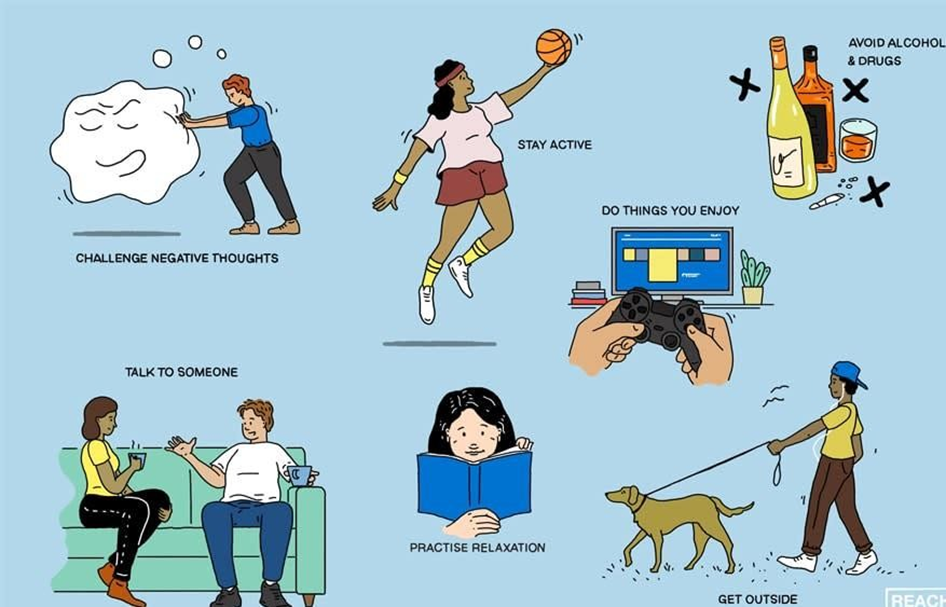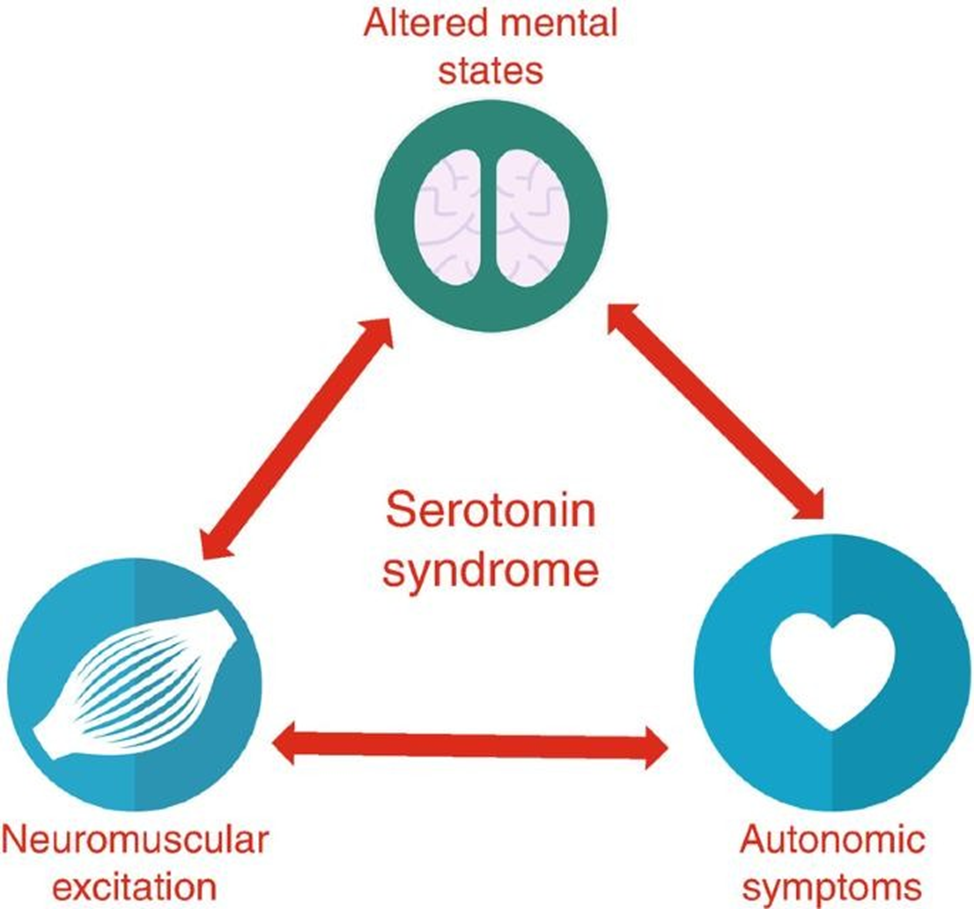RN HESI Mental Health Exam.
RN HESI Mental Health Exam.
Total Questions : 42
Showing 10 questions Sign up for moreA client with depression does not want to communicate with friends, uses television watching as a means of escaping responsibilities, and describes the inability to handle personal circumstances. Which coping strategy should the nurse include in the plan of care?
Explanation
A. Shifting attention from self to others might strain the individual further as they might not have the emotional energy for it.
B. Relaxation without addressing underlying issues won't help in managing depression and might exacerbate the situation.
C. Focusing on small achievable tasks helps in breaking down overwhelming problems into manageable parts, aiding in a sense of accomplishment.
D. Ventilating emotions might be beneficial, but solely relying on this strategy might not address the core issue of handling responsibilities.

A female college student is admitted to the mental health unit following a drug overdose. The student tells the nurse that she took the overdose following the end of a romantic relationship. Which is the primary goal for hospitalization that should be included in this client's plan of care?
Explanation
A. Returning to a previous level of functioning is essential for someone hospitalized due to an overdose as it ensures their safety and stability.
B. Identifying personal traits might be a part of therapy but is not the primary goal immediately after an overdose.
C. While exercise can be beneficial, it's not the primary concern right after a suicide attempt.
D. Discussing relationship needs is important but not the immediate priority after a suicide attempt.
A female college student is admitted to the mental health unit following a drug overdose. The student tells the nurse that she took the overdose following the end of a romantic relationship. Which is the primary goal for hospitalization that should be included in this client's plan of care?
Explanation
A. Returning to a previous level of functioning is essential for someone hospitalized due to an overdose as it ensures their safety and stability.
B. Identifying personal traits might be a part of therapy but is not the primary goal immediately after an overdose.
C. While exercise can be beneficial, it's not the primary concern right after a suicide attempt.
D. Discussing relationship needs is important but not the immediate priority after a suicide attempt.
When the nurse addresses questions to an adult female client who is depressed, the client's responses are delayed. Which intervention should the nurse include in this client's plan of care?
Explanation
A. Initiating an exercise program might be helpful, but it doesn't directly address the delayed responses or aid in communication.
B. Asking the client to describe her depression might be beneficial, but it may not be suitable if the client's responses are delayed.
C. Spending time in silence with the client can create a safe and supportive environment, allowing the client to communicate at her own pace without feeling pressured.
D. Observing for signs of psychosis is important but doesn't directly address the delayed responses.
A client reports needing to increase opioid dosage to achieve the original level of pain relief.Which action should the nurse take?
Explanation
A. Explaining the phenomenon of opioid tolerance and receptor response reduction with continued use helps the client understand why increased dosage might be needed.
B. Collecting information on opioid sources is important but doesn't directly address the issue of increased tolerance.
C. Detoxification might be an extreme measure and is not the first step in addressing increased opioid tolerance.
D. Discussing the dangers of opioid misuse is essential, but it doesn't address the specific issue of increased tolerance for pain relief.
A client with borderline personality disorder tells the nurse, "You are the best nurse on the unit! The other nurses don't care about me the way you do." Which response should the nurse provide to this client?
Explanation
A. This response may invalidate the client's feelings and might not provide reassurance about the nurse's support.
B. This response deflects the client's statement and might not address the client's feelings of being cared for.
C. This response acknowledges the client's feelings, reinforces the presence of the nursing team, and emphasizes the collective goal of helping the client get better.
D. This response might indirectly question the client's perception and doesn't directly address the client's need for reassurance and support.
Following the visit, what are appropriate actions for the nurse? Select all that apply.
Explanation
A. Mailing education items to the home for batterer treatment options might not be appropriate without the client's consent or discussion.
B. Providing referrals for mental health services aligns with addressing the client's needs.
C. Following up with the client in a few weeks ensures continuity of care and monitoring of the client's progress.
D. Calling the police as a mandatory reporter might be necessary if there's an immediate threat, but it's not mentioned in the scenario.
E. Documenting verbatim statements about the abuse is crucial for accurate record-keeping and legal purposes.
An antidepressant medication is prescribed for a client who reports sleeping only four hours in the past two days and a weight loss of nine pounds within the last month. Which client goal is most important to achieve within the first three days of treatment?
Explanation
A. Understanding the purpose of the medication regimen is important but might not be the most immediate concern.
B. Improving sleep to at least six hours a night addresses the client's reported insomnia and supports their physical well-being.
C. Describing the reasons for hospitalization might be essential for the client's understanding but might not have the immediate urgency.
D. Meeting the scheduled appointment with the dietitian is important for nutritional concerns but might not directly address the client's reported sleep and weight loss within the first three days of treatment.
A client with schizophrenia returns to the clinic two weeks after receiving a prescription for haloperidol. To assess for neuroleptic malignant syndrome (NMS), which information is most important for the nurse to obtain during this visit?
Explanation
A. White blood cell count might be relevant for other conditions but is not specific to NMS.
B. 24-hour urinary output might help evaluate kidney function but is not specific to NMS.
C. Blood sugar level might be important but is not the primary indicator of NMS.
D. Vital signs, such as temperature, blood pressure, heart rate, and respiratory rate, are crucial in assessing for NMS as it typically presents with changes in these parameters.

A client is admitted to the mental health unit and sits in the corner of the day room. When the nurse begins the admission assessment interview, the client is guarded, suspicious, and resists talking. Which action should the nurse implement?
Explanation
A. Involving another nurse might not necessarily address the client's guarded and suspicious behavior.
B. Documenting the behavior is important for the client's records, but it doesn't address the immediate need for assessment.
C. Postponing the interview might not resolve the client's guarded behavior and could delay necessary assessment.
D. Attempting to ask the client simple questions allows for a non-threatening approach and might gradually build rapport, encouraging the client to engage in conversation.
You just viewed 10 questions out of the 42 questions on the RN HESI Mental Health Exam. Exam. Subscribe to our Premium Package to obtain access on all the questions and have unlimited access on all Exams. Subscribe Now



